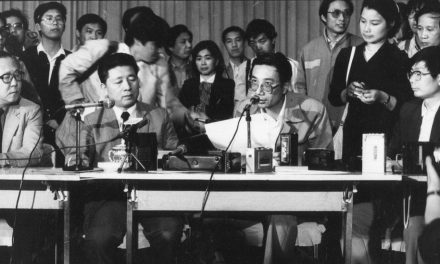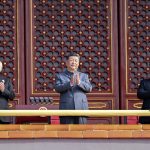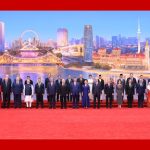By Qingmin Wang
Starting on the first day of his new administration, U.S. President Donald Trump joined forces with world’s richest man Elon Musk to launch a wave of funding cuts aimed at dismantling government agencies, firing civil servants, and slashing funding for NGOs.
Among the first to be targeted was the United States Agency for International Development (USAID), which provides humanitarian aid and human rights support worldwide. The agency is set to be downsized from over 10,000 employees to just 290. In addition to USAID, the administration also halted funding for many humanitarian aid programs and human rights initiatives in Asian, African, and Latin American countries.
The justification for these cuts is that many U.S. government agencies and the NGOs they fund are corrupt, wasteful, and inefficient, consuming large amounts of taxpayer money. Musk has strongly criticized these institutions and their personnel, even sending out young investigators—reminiscent of China’s “Red Guards”—to inspect agencies and lay off civil servants.
I do not support these actions. While these agencies do suffer drawnbacks, including corruption and inefficiency, their contributions far outweigh their shortcomings. USAID, for example, has played a crucial role in alleviating famine in Africa, improving the health of women and children in Southeast Asia, and strengthening human rights movements in authoritarian countries. As such, USAID has significantly contributed to global peace, development, and humanitarian progress. As with any institution, problems are inevitable, but they in no way serve as justification to dismantle the entire structure.
Cumbersome procedures and officials who speak in bureaucratic jargon have never been a popular feature of politics. Consequently, widespread belief that bureaucracy and formalism are ineffective and merely siphon off taxpayers’ money has played a crucial part in the rise of populist figures like Trump, who promise a break from the old system. Emotionally, this sentiment is understandable. But once emotion is put to the side, it’s evident that eliminating bureaucratic procedures and dismissing civil servants would ultimately have even worse consequences for the public, both domestically and abroad.
A few years ago, I wrote an article on Hungary and the European Union (EU), using the EU as an example to discuss the pros and cons of bureaucratic systems. Here is an excerpt:
“Opponents of the EU, particularly anti-establishment populists, do have some seemingly reasonable and understandable motives. The EU, as a massive institution—arguably one of the largest bureaucratic systems in the world, comparable in scale and complexity only to China and India—indeed faces some bureaucratic issues. Its composition is not entirely fair or reasonable (larger countries dominate institutions, and elites hold most of the decision-making power), and its operations are not always smooth. Naturally, its policies and influence have both positive and negative effects.”
However, despite these flaws, the EU remains one of the most successful bureaucratic institutions in the world. It has significantly improved the economic and social standards of member states, particularly less developed ones. While every institution has its shortcomings, they in no way serve as justification for dismantling the entire system—one should not “throw the baby out with the bathwater.” Yet anti-EU populists, much like the figures criticized in Lu Xun’s essay Napoleon and China’s Sui Dynasty, consistently advocate the destruction of existing systems. Populist flatter the strong and ruthless while ignoring and attacking those who quietly work to build and sustain order.
A relevant comparison is Wikipedia. I once regularly contributed to Chinese Wikipedia, but eventually left due to the selective and heavy-handed rule enforcement of politically biased administrators. Wikipedia’s editors and administrators represent different values and interest groups, meaning that its content moderation is often politically motivated, and controversial topics are subject to frequent ideological and interest-driven edits. Wikipedia’s rules—especially regarding deletions and bans—are also flawed, with numerous loopholes and inconsistencies.
But despite all these shortcomings, Wikipedia remains an essential resource for basic knowledge, reference materials, and research leads. In comparison, the EU’s institutions are far more transparent, well-structured, and fair. The EU considers the interests of smaller and weaker nations in its institutional framework and actively promotes the representation and participation of women and other marginalized groups. While emphasizing integration, it also respects diversity—its motto is “united in diversity.”
The EU’s highest decision-making body, the European Parliament, consists of members elected by the citizens of each member state through universal suffrage. Apart from a few highly classified matters, all EU operations and decisions are fully transparent and open to external scrutiny and criticism. In terms of efficiency, the EU performs well, as evidenced by the economic growth of its member states over the years. Moreover, EU officials and civil servants are among the cleanest in the world, with levels of integrity comparable to those in Singapore and Northern Europe. This is a remarkable achievement, demonstrating that bureaucracy, centralization, and regulation do not necessarily produce corruption.
Bureaucracy is a permanent fixture of any government. Features of bureaucracy such as complex procedures and formal regulations are often necessary, as the absence of such rules can foster disorder, chaos, arbitrariness, and even major disasters. Even populists who criticize bureaucracy inevitably adopt bureaucratic structures once in power. Decisions made by professional elites are generally more reliable than those made by unqualified leaders. While individual policies may be flawed, the overarching principles and long-term direction of a government remain stable, ensuring the proper functioning of institutions and society. With necessary regulation in place, the separation from those in power from those they govern becomes much less of a concern—everyone has self-interest, but as long as bureaucrats perform their duties competently, the system can still function as intended.
After coming to power, populist leaders often turn out to be even crueler and more wasteful than the bureaucrats they surplanted. Mao Zedong’s rise to power, which replaced Chiang Kai-shek’s corrupt Nationalist government only to plunge China into decades of disaster, is a prime historical example.
Although Chinese Communist Party (CCP) leadership was composed of some highly educated intellectuals, most of its cadres—including those who later became senior government and ministry officials—lacked formal education and professional expertise. Compared to the Western-educated technocrats of the Republic of China, they initially appeared more “down-to-earth” and sympathetic to the common people. Furthermore, in the CCP’s early years the party exhibited democratic tendencies and pragmatic governance.
Within just a few years, however, the CCP’s bureaucratic tendencies, selfish policy making, and disposition towards violence far exceeded that of Nationalist officials. Under the CCP’s incompetent leadership, China suffered through numerous anti-intellectual campaigns. A prime example is The Great Leap Forward, whose quota-driven policy resulted in the production of useless backyard steel and hugely exaggerated grain yield reports—both of which led to economic collapse and massive famine. While Mao Zedong was the worst offender, other CCP leaders followed a similar pattern.
During the Great Chinese Famine (1959–1962), for example, provincial leaders such as Zeng Xisheng, Li Jingquan, Wu Zhipu, Shu Tong, and Zhang Zhongliang, along with many other local officials, all came from humble farming backgrounds. Consequently, one might expect them to understand agricultural realities and empathize with the suffering of the people. Instead, they presided over policies that led to the deaths of hundreds of thousands to millions in their respective provinces. Even if they were not the primary culprits, their actions exacerbated the crisis. Had they possessed a solid education and basic economic knowledge, they might have pushed back against disastrous policies rather than blindly enforcing them.
Populist leaders, despite occasional successes, generally govern in an unscientific manner. They often reject expert advice and fail to consider long-term consequences, making large-scale disasters almost inevitable.
As for issues of fairness, no person or system can achieve absolute justice or complete equality. A more realistic goal then might be relative equality—with governments working to ensure equal legal rights and reduce wealth disparities. Pro-EU elites have certainly profited by virtue of their positions, but their contribution to society generally outweighs any individual rewards. Moreover, institutions can be reformed and improved. Bureaucracies and elites are not immutable; they can be subjected to public scrutiny, media criticism, systemic reforms, and personnel changes.
Thus, the people of Europe—including anti-establishment populists—should cherish the achievements of European integration and objectively recognize the EU’s beneficial role for the continent. They should not overlook the silent contributions that sustain order and stability—as we’ve seen, doing so can have deadly consequences. The EU’s accomplishments in maintaining peace and fostering development in Europe and beyond are even more remarkable than the victories of World War II’s countless battles. The difference is that the EU’s success shines in the daylight, rather than flashing momentarily in the darkness of war. It should not be ignored.
As Lu Xun said in his essay Napoleon and Jenner:
“(A doctor) sighed to himself: If you want to be praised, it’s best to kill people. Just compare Napoleon and Jenner… Some even go so far as to praise Genghis Khan, despite the fact that our ancestors were once slaves to the Mongols. From the perspective of the current 卐-symbol-eyed view, the yellow race is already considered inferior, yet we still admire Hitler. Because all three of them were ruthless harbingers of catastrophe, killing without hesitation. But who among us remembers the name of Jenner, the man who discovered the smallpox vaccine? Those who kill destroy the world, while those who save lives repair it. Yet the cannon fodder of society always flatters the killers. If this mindset does not change, I believe the world will continue to be destroyed, and people will continue to suffer.”
The same logic applies to USAID, other U.S. government agencies, and related NGOs. Issues like corruption, inefficiency, and waste must be addressed through reforms, firings of incompetent officials, increased transparency, and stronger oversight. However, completely dismantling these institutions in a populist manner—stigmatizing, destroying, and abandoning their human rights and humanitarian missions—will only lead to greater tragedies both in the U.S. and abroad.
This piece was translated from Yibao Chinese. If republished, please be sure to add the source and link https://www.yibao.net/?p=247999&preview=true before the text when reposting.

























